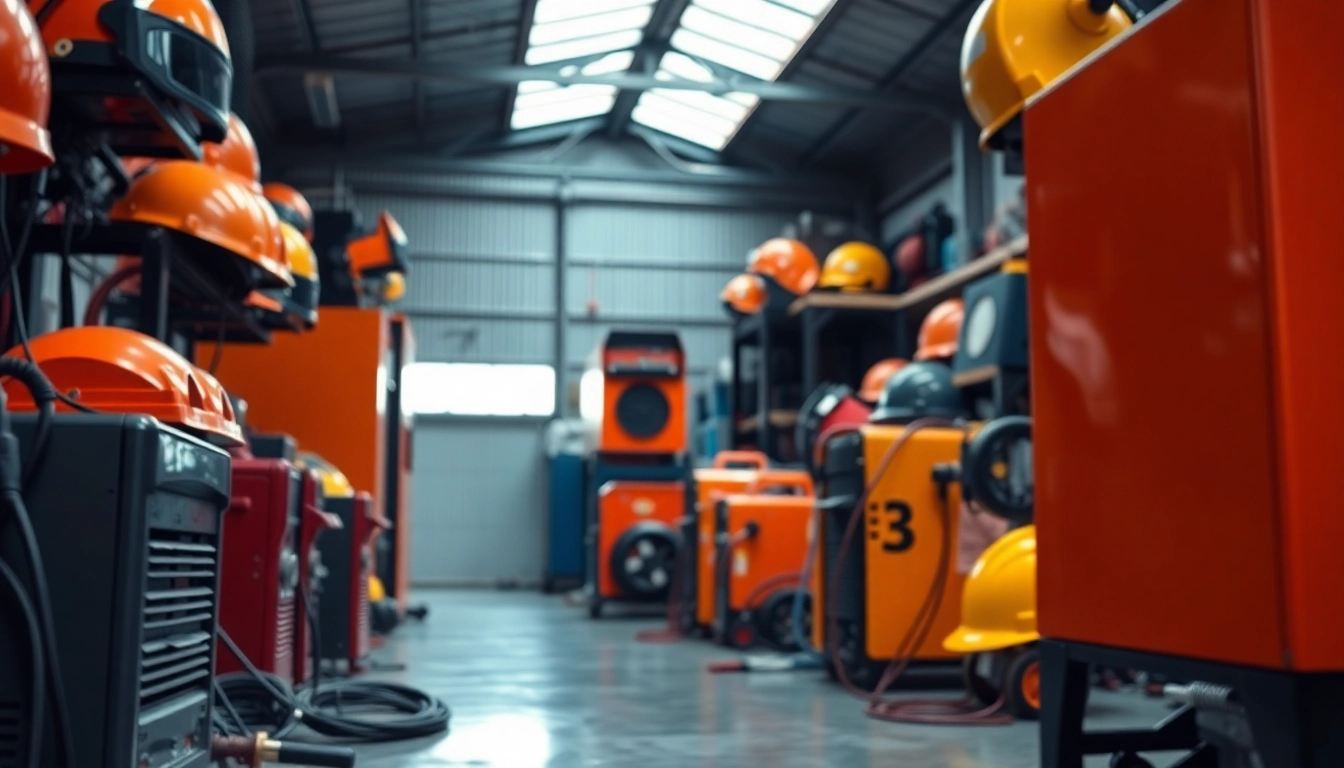
Understanding Welding Supplies
What are Welding Supplies?
Welding supplies refer to a comprehensive range of materials and equipment used in welding processes. From tools and machinery to safety gear and consumables, these components are essential for achieving effective and high-quality welds. For those in the industry, having access to the right welding supplies is paramount for both safety and performance.
Types of Welding Supplies Available
The categories of welding supplies can be quite extensive. Below are some key types:
- Welders: Traditional arc welders, MIG welders, and TIG welders are among the most common types used for different applications.
- Welding Filler Materials: These include wires and rods that are used to fill the joint between workpieces. Different metals and requirements dictate the type of filler material chosen.
- Welding Accessories: This category covers items such as welding glasses, clamps, and magnets, which aid in securing materials and protecting the user’s eyes from harmful light.
- Safety Gear: Essential for any welder, this includes helmets, gloves, jackets, and boots that protect against sparks and molten metal.
Choosing Quality Over Price
When it comes to welding supplies, opting for quality over mere affordability can significantly impact the results of your work. Cheaper supplies may lead to unexpected failures, potential safety hazards, and poor weld quality. Investing in reputable brands often translates into durability and consistent performance. Look for certifications and reviews that affirm the safety and effectiveness of the product, ensuring you make educated decisions based on both quality and price.
Essential Welding Equipment for Beginners
Must-Have Welding Supplies for Starters
New welders often face an overwhelming number of choices when setting up their toolkit. Here are essential supplies that every beginner should consider:
- Welding Machine: Start with a versatile, multi-process welder that can handle various types of welding (MIG, TIG, Stick, etc.).
- Welding Helmets: Invest in an auto-darkening helmet that provides protection and improves visibility.
- Welding Gloves: Choose gloves that offer dexterity while still ensuring protection from heat and sparks.
- Protective Clothing: Flame-resistant jackets and pants are critical for protecting your skin.
- Welding Table: A sturdy and flat surface on which to work is essential for precise welding tasks.
Safety Gear: The First Line of Defense
Safety should be the cornerstone of any welding endeavor, particularly for beginners who may be unfamiliar with the risks. Standard safety gear includes:
- Welding Helmets: Always wear a helmet to protect your face and eyes from UV rays and sparks.
- Gloves: Proper gloves protect your hands from heat and injuries.
- Boots: Steel-toed boots reduce the risk of foot injuries from falling objects.
- Ear Protection: If you are working in a noisy environment, consider using earplugs or earmuffs.
Adopting safety protocols, such as ensuring your workspace is free from hazards and using equipment correctly, can dramatically reduce the chances of accidents.
Choosing the Right Welding Machine
Selecting the right welding machine is critical for new welders. Consider factors such as:
- Welding Type: Consider what kind of welding you’ll be doing (MIG, TIG, Stick) as certain machines are better for specific tasks.
- Power Supply: Ensure the welder can operate with your available power supply, whether it’s 110V or 220V.
- Portability: If you need a machine that’s easy to transport for different job sites, consider its weight and the design.
Begin with an entry-level machine and upgrade as your skills improve and your projects become more advanced.
Advanced Welding Supplies for Experienced Welders
High-Performance Welding Tools
Experienced welders often have specific needs that require advanced equipment. Below are tools that may be advantageous:
- TIG Welding Equipment: Used for precise welding tasks, TIG torches allow welders greater control over heat and the material being welded.
- MIG Gun and Feeders: High-quality MIG guns can improve feedability and decrease downtime when starting welds.
- Multi-Process Welders: Tools that can handle multiple processes increase versatility and efficiency on the job.
Upgrading Your Safety Equipment
As you advance in welding, it’s critical to regularly assess and upgrade your safety gear:
- Helmets with Enhanced Features: Consider helmets equipped with upgraded filters for improved visibility and comfort.
- High-Quality Protective Clothing: Investing in premium flame-resistant clothing can offer enhanced protection over standard gear.
- Advanced Respirators: If you’re working with materials that emit fumes, a respirator is vital for breathing protection.
Specialized Accessories for Specific Techniques
Advanced welding techniques, such as pipe welding or aluminum welding, often require specialized accessories:
- Pipe Welding Clamps: These tools prevent pipe from moving during the welding process, ensuring accuracy.
- Aluminum-Specific Consumables: Use rods and wire designed specifically for aluminum to achieve the best results.
Where to Buy Welding Supplies
Online vs. Local Stores
When it comes to purchasing welding supplies, the choice between online and local stores depends on your needs. Online retailers often offer a wider selection and may have better deals, but local stores provide the advantage of immediate availability and personalized customer service. Visiting local stores also allows you to assess the equipment in person before purchase.
Top Brands to Consider
Choosing well-recognized brands can be beneficial for quality assurance. Some of the top brands in welding supplies include:
- Miller Electric: Renowned for its reliable welding machines and accessories.
- Lincoln Electric: Offers a variety of machines and consumables that are suited for both novice and professional welders.
- ESAB: Known for innovative welding equipment and tools catered to a variety of welding applications.
Price Comparisons and Discounts
To ensure you’re getting the best possible deal, always compare prices across different retailers and take note of any ongoing promotions. Many suppliers also offer discounts on bulk purchases or seasonal sales which can lead to significant savings. Ensure that you factor in shipping costs when purchasing online, as these can affect the overall price.
Maintenance and Storage of Welding Supplies
Proper Care for Welding Machines
Maintaining welding machines is essential for ensuring their longevity and effectiveness. Key maintenance tips include:
- Regular Cleaning: Remove any debris and spatter from machine surfaces after use.
- Inspect Cables and Hoses: Check for signs of wear or damage to prevent failures during operation.
- Routine Calibration: Ensure machines are properly calibrated and functioning as intended to maintain quality in every weld.
Storing Consumables Safely
Proper storage of welding consumables is vital to maintain their quality:
- Keep in a Dry Environment: Moisture can affect the usability of metal rods and wires, leading to poor weld quality.
- Use Original Packaging: Storing consumables in their original packaging can protect them from dust and exposure.
Maintaining Safety Equipment
Just like your welding machines, safety equipment requires regular checks and care:
- Inspect for Damage: Regularly check gloves, helmets, and jackets for any signs of wear or damage that could compromise safety.
- Wash Protective Gear: Ensure your clothing is clean and free from flammable materials by washing them according to the manufacturer’s guidelines.





